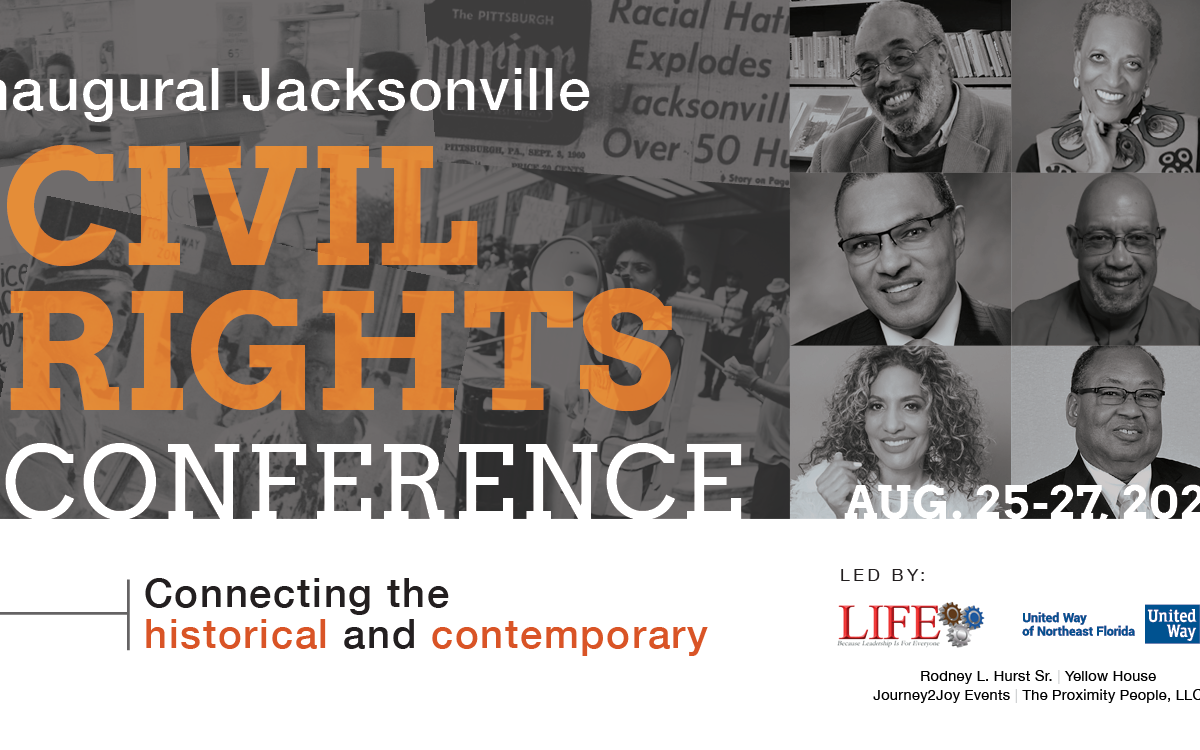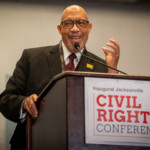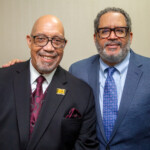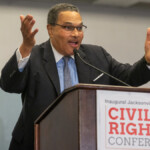
THE STRUGGLE CONTINUES: THE INAUGURAL JACKSONVILLE CIVIL RIGHTS CONFERENCE
“Freedom is not Free. If you are not a part of the solution, you are a part of the problem.” This quote from Rutledge Pearson, Rodney Hurst’s 8th-grade American history and ninth-grade Civics teacher, adviser to the 1960 Jacksonville Youth Council NAACP, and Hurst’s mentor resonated throughout Jacksonville’s Inaugural Civil Rights Conference held in Jacksonville on August 25-27, 2022. The conference also coincided with the 62nd anniversary of the 1960 Jacksonville Youth Council NAACP when Hurst, the 1960 Youth Council NAACP president, led sit-in demonstrations at White lunch counters in downtown Jacksonville, resulting in the infamous and violent ax handle Saturday.
The conference featured national speakers: Dr. Michael Eric Dyson, Dr. Freeman Hrabowski, Dr. Johnnetta Betsch Cole, and Leon Russell. In addition, civil rights activists Charlie Cobb, Chevara Orrin, Hurst, and Rev. Dr. Christopher McKee were featured in a conversation about civil rights.
The conference featured the history of some of the country’s and Jacksonville most well-known civil rights leaders and other personalities who call Jacksonville home: From the “Father of the modern Civil Rights Movement,” A. Philip Randolph, “Renaissance” man James Weldon Johnson, entertainer Billy Daniels, actress Paula Kelly, legendary basketball coach John Cheney, and many more. G. C. Cameron, legendary former lead singer of the Spinners and the Temptations closed the conference with a high energy, enthusiastic Old School Classic Motown concert.
Rodney Hurst, a 16-year-old teenager in 1960, who led the sit-ins on the infamous Ax Handle Saturday, was the architect of the conference, which started Thursday night and ended Saturday evening.
Hurst told participants: “Black history is who we are. Racism is why we fight.”
More than 250 people attended the conference in person at the Southbank Marriott, with another 100 who watched online.
Topics in speeches and break-out sessions included the treatment of low-income and Black people by law enforcement, Black history, housing issues, generational wealth, voting rights, and inequalities, including city services.
Johnnetta Cole, a Jacksonville native, President Emerita of both African-American HBCU, Spelman College and Bennett College, and the former director of the Smithsonian Institution’s National Museum of African Art said, “I’m filled with pride that my city is having such a critical conference at this point.”
The sold-out event was sponsored by some major local names in Florida, including Miller Electric Company, United Way of Northeast Florida, JEA, CSX, Baptist Health, and Florida Blue.
Darnell Smith, Florida Blue’s North Florida market president, said the deaths of people like Breonna Taylor and George Floyd made his team look inward and make changes, including making Juneteenth a corporate holiday.
“We looked at ourselves and said although we’re doing good work, we are not doing enough, so we set out to focus on this work very differently,” Smith told attendees. “A group of our employees, leaders, and frontline employees came together and asked, “So what does equity look like?”
Following the conference, Hurst, the local United Way, LIFE (Leadership Is For Everyone Inc.), and other event sponsors and activists will continue to host similar conversations on a smaller scale while pl plan to hold an annual Civil Rights conference.
Hrabowski said, “The emphasis should be on hope. That is the legacy of the civil rights movement. I hope there is action,” Hrabowski said. “It’s one thing to talk about things, but the question is, what can people do? Of all the things I can think about, it is to have more people hope that their vote counts. We need people to vote.”
Hurst commented, ‘maybe Jacksonville will learn to become a part of the solution and years of being part of the problem.’












